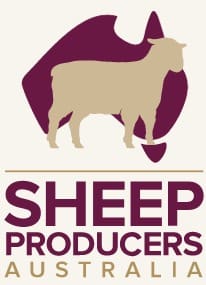 FULL transparency in over-the-hook sheep meat prices in Australia has been suggested in a report into the sector’s market structures and systems.
FULL transparency in over-the-hook sheep meat prices in Australia has been suggested in a report into the sector’s market structures and systems.
Sheep Producers Australia yesterday released an investigative report that sets the foundation for its focus in 2018 to strengthen Australia’s sheep meat market structures and systems.
The independent report, Sheepmeat Market Structures and Systems Investigation, was prepared by AgConcepts Advisory and Strategis Partners for Meat & Livestock Australia on behalf of SPA.
Sheep producers Australia said the report will guide the Australian sheep industry in developing an evidence-based policy response to findings delivered to the red meat industry by recent parliamentary and statutory authority inquiries in 2017.
These inquiries include the Australian Competition and Consumer Commission’s Cattle and Beef Market Study and the Senate Standing Committee on Rural and Regional Affairs and Transport.
Over-the-hook reports less transparent
The report said saleyard reporting and performance provides transparency and confidence. However, OTH sale reports are less transparent and there is a lack of confidence in them.
“While online sale reporting is transparent, comparison analysis with other selling options is difficult.”
The report said full transparency exists at saleyards, with buyers and prices recorded and reported.
“It should be the aim to replicate this transparency for OTH prices, providing valuable information to the industry.”
The report’s authors suggested improved OTH price reporting would involve processors supplying all prices paid for the week, which would assist in calculating weighted price indicators similar to the saleyard indicators.
The report suggested further inquiry with processors to research the prospect of public display of price bids.
“This could take the form of a bid/offer board, similar to CLEAR Grain or Wooltrade, where anonymised bids and offers are posted.”
The report concluded that mandatory reporting is not considered a possibility in the Australian sheep meat industry.
“However, SPA and MLA should engage with the Australian Meat Industry Council with the aim of developing a positive argument to prosecute the case for meat processors publicly posting OTH and forward prices.
“This should include an analysis of a centralised online platform to post prices,” the report said.
“The focus of this proposal must identify benefits to the processors and have clear explanations to counter resistance.
“Without identified benefit to the processor, this initiative will fail.“
The report provides an overview of the sheep meat industry and current state of the market and looks at the drivers for change historically, currently and forecast in future. It also analyses methods of selling, differences between markets across Australia, price reporting, over-the-hook grading, and barriers to entry in the processing sector.
Report will be foundation for industry policy
SPA president Allan Piggott said the report provided an in-depth stocktake of current practices that can be used as a foundation in developing policy that encompasses the whole supply chain.
“In partnership with supply chain representatives, the sheep industry is uniquely positioned to harness the report’s insights and take a methodical, evidence-based, outcome-driven approach to developing practical industry policy that benefits all participants,” Mr Piggott said.
“We have published the report today to provide an opportunity for discussion and input into the policy making process by all sheep industry stakeholders.
“This is the first step in the policy development process. SPA – with input from our state farming organisation members and supply chain partners – will work on evaluating the report and drafting a sheep industry response during February and March to the parliamentary and statutory authority inquiries,” he said.
“For any individuals or organisations that would like to directly provide input into the process, please contact the SPA office.”
The report is available at www.sheepproducers.com.au or contact the SPA office on 02 6269 5610.
Source: SPA.

I have read many reviews of all sorts of industries extolling the benefits of scale and vertical integration in industry supply chains. This review makes the mistake many of them do and has some rather naive and dangerous observations on scale in the abattoir sector.
So what is wrong with mega vertically integrated abattoirs? After all large, technologically advanced abattoirs are cheaper to run
and Australia is the most expensive place to process animals on the planet.
The problem is these abattoirs are becoming gatekeepers in the supply chain as they become regional monopolies. They have no interest in providing service kills for new emerging niche brands that can improve competition at the farm gate and transparency in the supply chain. When NSW Farmers was opposing the acquisition of Primo by JBS I took the owner of one such brand who could not get a sheep kill in the north of NSW to explain the issue to Barnaby Joyce.
The ACCC has to start understanding that Australia is not a single market for meat processing and that regional monopolies pose a significant threat for the sheep industry. Companies seeking consolidation in processing have to offer service kills to emerging brands otherwise the opaque supply chains described in this paper will be perpetuated.
On another issue. I am surprised and disappointed the paper failed to compare virtual saleyards (AuctionPlus) with the physical saleyards in price discovery efficiency. Michael Craig at Sheep producers Australia with his Nuffield Scholarship on price discovery should have been all over this glaring omission in the paper. Electronic markets are a safer biosecurity proposition, but can also help to increase competition.
Interesting that it is full transparency at saleyards with buyers and prices recorded and reported – just a problem that it is an estimated carcase weight. Full names required in future for reader comments please Rod, as per Sheep Central’s long-standing comments policy: https://www.sheepcentral.com/about-us/sheep-central-comment-policy/ Editor.